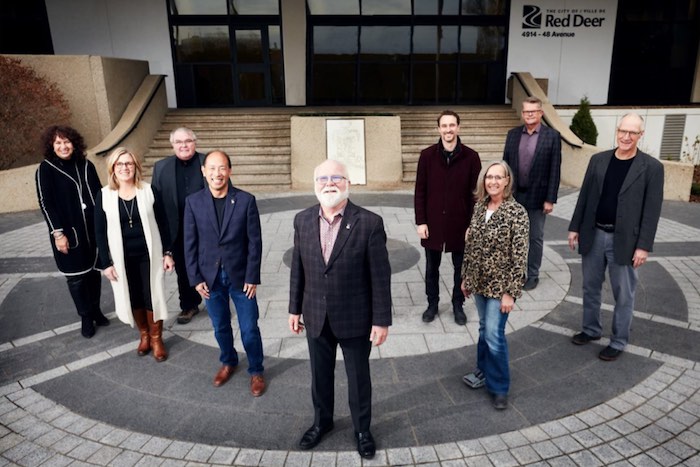City of Red Deer
City releases Annual Financial Report for 2022

Financial Statement Highlights & Analysis
Operating Results
2022 has been an unprecedented year for The City with the economy recovering from the COVID-19 pandemic and the Bank of Canada hiking interest rates to help mitigate rising inflation. These issues, not unique to Red Deer, are posing challenges to The City’s current financial strategy.
Total operating revenue has increased by $8.1 million (3%) over last year but fell short of budget by $14.7 million (4%).
User fees and sale of goods went up by $11.9 million due to an increase in service levels after the pandemic in recreation facilities, transit, and utilities. Most of the increase is in land sales.
Unfortunately, the recovery did not return The City’s operations to pre-pandemic levels. The expectation of revenue increases in those areas exceeded actual results.
Operating expenses were also heavily impacted. Pandemic recovery as well as higher inflation have contributed to the general increase in expenses over last year in the amount of $20.2 million (5%). These increases come in the form of higher fuel costs in transportation and fleet, higher transmission costs and tariffs for electric light and power, and increased salaries at recreation facilities, transit, as well as ongoing overtime for police and emergency services.
On an object basis, these increases are primarily impacting salaries, contracted services, and materials and supplies expense, offset by the decrease in grants to organizations. The City planned on these costs rising, however, and came within $3.5 million (1%) of budgeted expenses.
Due to lower-than-expected revenue and increasing expenses, The City reported an operating deficit of $43.5 million for the year ended December 31, 2022. This is $11.2 million (35%) over budget of $32.4 million.
Operating deficits can affect The City’s ability to fund operations in the future, as it has a direct impact on tax supported reserves. Reserves overall have declined by $21.3 million (11%); $18.7 million of that decrease is the Operating Reserve- Tax Supported (ORTS). The City budgeted a decline (use) of ORTS during 2022 and expected a year-end balance of $17.5 million, however due to the operating deficit, the actual year-end balance is now $8.9 million.
Taken together, tax-supported activities (general government services, protective services, transportation, community services, and recreation, parks, and culture) reported a deficit before capital related revenues of $71.5 million. This is mostly related to depreciation on tangible capital assets which The City does not fund through taxes, but through equity in tangible capital assets. The remaining 25% of the shortfall must be funded through ORTS.
The main areas attributing to the unexpected shortfall in tax supported operations is the RCMP contract and the Kinsmen arena contaminated site accrual as well as lower-than-expected tax-supported revenues, namely investment income, transit, recreation, and fines. These shortfalls are somewhat offset by higher staff vacancies and lower finance charges in transportation and higher community services grants.
Despite this concerning decline in ORTS, self-supported operations are holding steady with no significant change from prior year when taken as a whole. The City expected the use of reserves during the past three years: future budgets will need to improve these key reserves. A revised reserve policy will be forthcoming to Council with a recommended minimum balance for ORTS.
Capital Results
The City’s capital expenditures revealed a little less activity compared to last year. This is due to one of the COVID-19 grant programs ending in 2022, leaving the COVID-19 Resilience grant until December 31, 2023. Total capital grant revenue recognized in the year is $46.7 million, which is $8.6 million (23%) more than projected and $1.9 million (5%) more than last year. The City put more emphasis on utilizing grants while they are still available and less on borrowing and capital reserve.
In 2022, total capital expenditures of $105.2 million were financed with 44% capital grants, 33% reserve, 18% debenture borrowing, and 5% developer fees and other external sources.
The capital activities for The City have resulted in an overall annual surplus of $9.7 million, which is much lower than prior year and lower than budgeted. This shows that The City has become increasingly dependent on capital grants to grow its accumulated surplus. However, it is important to note that all of this surplus is used to purchase tangible capital assets and is not available for operations.


Financial Position
The statement of financial position tells its own story. Both financial assets and liabilities declined over last year. Municipal Sustainability Initiative (MSI) and Canada Community Building Fund (CCBF) advances for 2022 have fallen by roughly half. Although, this did not change the amount of grant revenue reported in 2022, it did reduce both government transfers receivable and deferred government transfers. This indicates potential declines in capital grant revenue reported in the future, especially as the COVID-19 Resilience grant comes to an end.
Because the decrease in financial assets exceeded the decrease in liabilities, the net debt has increased by $21.2 million (20%) from prior year.
Impacts from COVID-19 recovery and rising costs are reflected in The City’s financial position as well. Lower capital expenditures in 2022 have freed up more cash flows to invest in short term deposits to take advantage of the higher interest rates. Losses on sale of long-term investment has also occurred, resulting in lower investment earnings recognized as short term interest is allocated to The City’s various deferred revenue balances.
The market value of The City’s investments fell over 6% to the investment cost, the largest decline in recent memory. Actual investment losses are not realized unless the investments are sold. Management believes that these declines are temporary as interest rates stabilize and the bond market adjusts to a higher interest rate environment.
Debt Limit
The City’s investment portfolio is not the only area affected by a higher interest rate environment. The cost of new borrowing will increase into the foreseeable future. Though, The City has reported no substantial increase in finance charges for 2022, the debt servicing limit is more forward looking. Despite higher revenues resulting in higher debt service limit of $89 million, total debt servicing costs have risen at a higher rate, resulting in an increase in debt service limit to 37%, up from 36%. This is largely due to full years’ worth of payments on the $19 million debenture issued September 2021 for The Westerner Exposition Association. Although a 1% increase is not a cause for concern on its own, it is important to note that, going forward, the more expensive new debt becomes, the higher the debt servicing limit will grow relative to the debt limit.
This is illustrated by The City’s debit limit decreasing even though debt servicing increased. The debt limit percentage is now at 56%, down from 58% due to higher revenues and long-term debt remaining relatively unchanged.

In Summary
With no changes to service levels, no increases to property taxes combined with increased costs during the past three years has culminated in The City relying heavily on operating reserves, specifically the ORTS. This is a trend The City must improve upon in the upcoming years.
While The ORTS is an area of concern, other indicators do provide a positive picture. Utility operations remain stable and well managed, the use of debt has leveled off, and the investments made to our assets are strong. Administration has more control over costs, which are managed well, and less control over revenues, which have not achieved our planned levels.
The task before us is to maintain what we are doing right and to improve upon our key reserve balances. The City’s future budgets are moving away from a reliance on reserves as a funding source and plan to update the reserve policy to prop up reserve balances. Our next two years will also see the City develop a Long Term Financial Plan and an overall values based service level review.
Respectfully submitted,
Ray MacIntosh, MBA, CPA, CGA Chief Financial Officer
May 1, 2023

(a) Salary includes regular base pay, overtime, lump sum payments, gross honoraria, and any other direct cash remuneration. The City does not pay bonuses to employees.
(b) Employer’s share of all employee benefits and contributions or payments made on behalf of employees including pension, health care, dental coverage, group life insurance, long and short- term disability plans, professional memberships, tuition, and car allowance. Benefits and allowances also include supplementary employee retirement plan payments and moving and relocation allowances.
(c) Benefits for City Councillors include accidental death and dismemberment, group life, health care, dental coverage, registered savings plan, internet and phone allowances, transit, and Canada Pension Plan.
(d) Included in benefits for the City Manager is a lump sum payout from the Muni SERP retirement plan in the amount of $133 in 2022.
City of Red Deer
City of Red Deer Employee Honoured with Bob Stollings Memorial Award for Outstanding Contributions

Annette Scheper, Community & Program Facilitator in the Safe & Healthy Communities Department is The City’s 2025 recipient of the Bob Stollings Memorial Award.
The Bob Stollings Memorial Award is given out each year to a City employee who displays outstanding performance in alignment with The City’s RISE cornerstone values – respect, integrity, service and excellence. Nominations for the award are submitted by fellow coworkers detailing the employee’s achievements professionally and interpersonally, along with letters of support. The award is considered a great honour among City staff.
With an impressive 22-year career, Annette has played a pivotal role in shaping Red Deer’s cultural and special events landscape. Her leadership and innovation have brought thousands of successful events to life, creating lasting traditions that enrich the lives of residents. Her commitment to excellence and resourcefulness has ensured that community initiatives are inclusive, accessible, and impactful.
One of Annette’s most notable achievements is the development of the Community Loan Program, which provides essential resources for local groups, contributing an annual value of $86,778.95 back into the community. In addition, she has successfully led and executed a variety of large-scale events, demonstrating remarkable problem-solving skills and a dedication to sustainability. From creating elaborate event designs with repurposed materials to managing complex logistics, she continuously sets the standard for excellence.
“Annette exemplifies the best of our organization,” said City Manager, Tara Lodewyk. “Her unwavering dedication, innovative thinking, and ability to bring people together has made a profound impact on our city. This award is a testament to her hard work and passion for creating meaningful experiences for our community.”
The Bob Stollings Memorial Award was first established in 1985 and is presented every year to honour Robert (Bob) E. Stollings, a loyal and dedicated City employee from 1960-1984.
City of Red Deer
Red Deer will choose a new Mayor as Ken Johnston decides to step away

It’s a telling detail about the person who leads Red Deer City Council. Always putting the city’s needs ahead of his own, Mayor Ken Johnston has announced his intentions within days of the opening of Nominations for October’s municipal elections,
After 12 years on council, Mayor Ken Johnston has decided against running for a second term as Mayor this fall. Johnson shared his decision in front of colleagues and supporters in a touching announcement on Wednesday.
At 71 years old, Johnston remains vibrant, passionate and healthy. He says that’s exactly why he and his wife Carolyn have decided now is the right time to start their next stage of life together.
Mayor Johnston listed a number of highlights and achievements he can look back on, including his help advocating for the redevelopment of Red Deer Regional Hospital, the growth of Red Deer Polytechnic, and positive moves in Economic Development.
All these lead of a feeling of ease about the decision to step away, though affordable housing and a permanent shelter for the homeless remain pressing concerns.
With about 8 months remaining in his term, Mayor Johnston is planning to push hard to move the needle on these housing issues.
“We’re looking forward to some more work and we’ll be going to the community shortly about it. So I still have optimism that maybe before the term is out we can have an announcement.”
This is the second major political announcement in Central Alberta in the last number of days. Earlier this week Red Deer Mountain View MP Earl Dreeshen announced he won’t be running in the next federal election.
-

 Frontier Centre for Public Policy2 days ago
Frontier Centre for Public Policy2 days agoCanada’s New Border Bill Spies On You, Not The Bad Guys
-

 Addictions1 day ago
Addictions1 day agoWhy B.C.’s new witnessed dosing guidelines are built to fail
-

 Business1 day ago
Business1 day agoCarney Liberals quietly award Pfizer, Moderna nearly $400 million for new COVID shot contracts
-

 Energy2 days ago
Energy2 days agoCNN’s Shock Climate Polling Data Reinforces Trump’s Energy Agenda
-

 Red Deer1 day ago
Red Deer1 day agoWesterner Days Attraction pass and New Experiences!
-

 Opinion1 day ago
Opinion1 day agoCharity Campaigns vs. Charity Donations
-

 Business1 day ago
Business1 day agoMark Carney’s Fiscal Fantasy Will Bankrupt Canada
-

 COVID-191 day ago
COVID-191 day agoTrump DOJ dismisses charges against doctor who issued fake COVID passports




